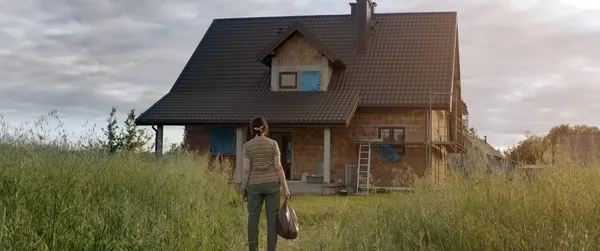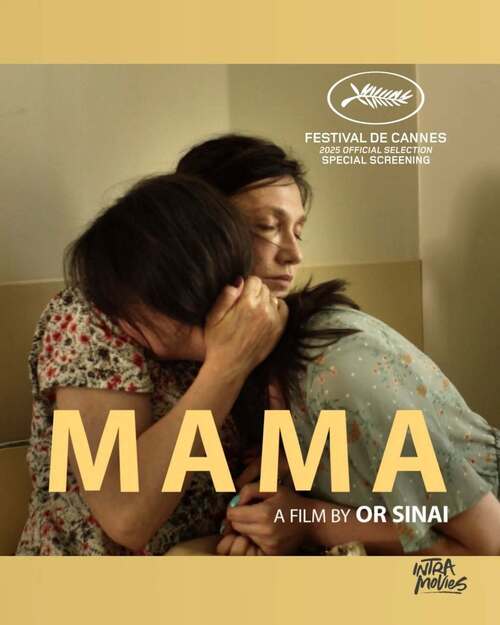Eye For Film >> Movies >> Mama (2025) Film Review
Mama
Reviewed by: Marko Stojiljkovic

While current topics tend to occupy our attention and drain the creative juices of the filmmakers trying to stay on top of the trends, others, more universal ones, often get neglected for a period of time. Sometimes, only sometimes, the most authentic and universal things remain hidden in plain sight, often behind a generic title. Both of the claims from previous sentences stand firmly in the only Israeli-led co-production at this year’s Cannes, Mama, which premiered in Cannes Special programme.
For her first fiction feature, Or Sinai reunites with Evgenia Dodina, the lead actress of her award-winning short Anna (2015). Dodina steps in the titular role of Mila, the main breadwinner for her Polish family. We meet her in Israel, where she works for a wealthy couple, Yaffa (Cheli Goldenberg) and Gideon (Meir Swisa), as a housekeeper. At the moment, she is also having a clumsy, but gentle fling with a younger man, Duby (Martin Ogbu), who works at the same place as a gardener. When Mila breaks her arm while trying to dust the ceiling fan, her employers send her home on vacation to recuperate. Although she fears that she could lose her job, she also sees the opportunity to finish her project back home – the construction of a new house.

Although her husband Antek (Arkadiusz Jakubik) and daughter Kasia (Katarzyna Lubik) seem elated to see her and finally spend some time with her, Mila learns that they have moved on with their lives without her and that they kept certain things secret. Kasia is getting ready to marry her boyfriend Jurek (Kacper Zalewski), with whom she is expecting a baby, which means that she will abandon her studies, which Mila was paying for and insisting on. And Antek, besides spending money intended for the house construction, also fell in love with Natasha (Dominika Bednarczyk), who also became something of a maternal figure for Kasia.
The story was inspired by the stories the filmmaker heard from the Ukrainian housekeeper that used to work for her parents, but it is also a part of global migration trends in the 21st century, as women from Eastern European countries move to the West for work. Fifty years ago, men were those who emigrated to work in factories and on construction sites. This gender shift resulted in the shift within their primary family dynamics. Sinai portrays the situations one might find quite common and “close to home” with precision and emotional clarity.
The background of the lead actress, to the wider audiences best known for the role she played in the TV series Killing Eve, also comes in handy. Dodina was born in Belarus and educated in Moscow, before emigrating to Israel in the Nineties and establisheing a fruitful film and theatre career there. From her own experience she can nail the inner turmoil of a person whose life is compartmentalised between “here” and “there”, without knowing for sure what “home” is.
Sinai’s directing is serviceable, although a tad predictable in the combination of Matan Radin’s hand-held camerawork and the rough, abrupt, sometimes even jump cuts in Michal Holland’s editing. The script also falls into predictable conventions at places, but, overall, Or Sinai runs a tight ship by telling a universal story with enough detail to add to the authenticity.
However, having in mind the tendency that the large-scale events, trends and politically motivated decisions overshadow the personal histories and humane, universal stories, the biggest success for Sinai is that Mama was made at first place and that it found its way to the audience. The cherry on top is the fact that it is quite critical, sometimes even merciless, to both environments it examines, especially regarding the class politics. It is a small-scale film with a lot of heart.
Reviewed on: 21 May 2025

















